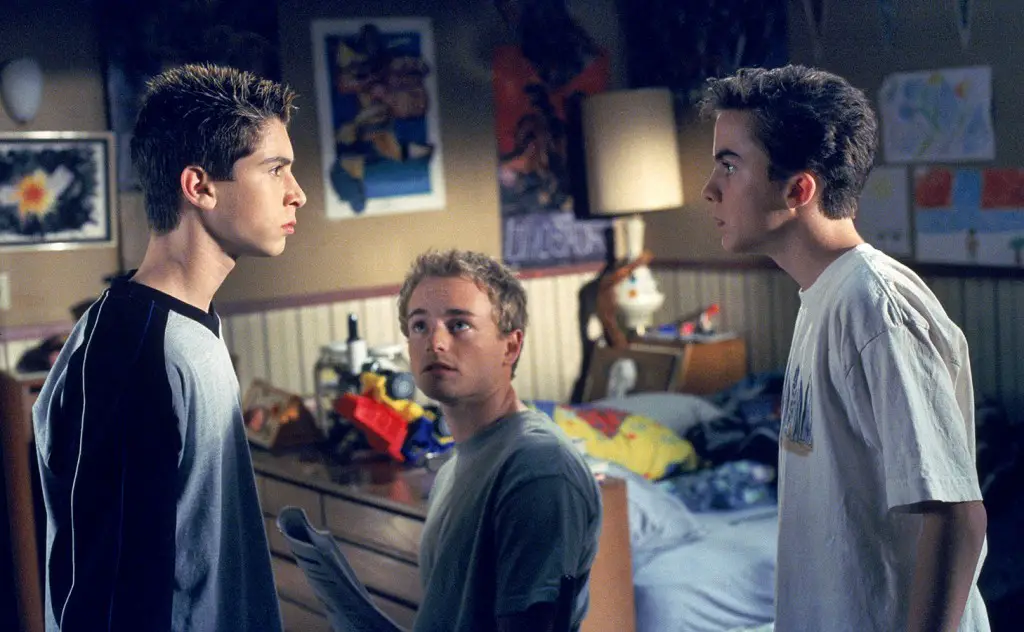Compared to Other Children’s TV, Malcolm Encountered a Gritty Reality
The sitcom followed the children of a lower middle-class family as they experienced the unpleasant facts of life.
By Michelle Nektalov, SUNY Purchase
“Life is unfair.”
The iconic final lyric to the opening theme song of “Malcolm in the Middle” prevailed true in nearly every episode of the series. No doubt untold numbers of current college students remember the sitcom for having one of television’s most hilariously dysfunctional families, and I’m here to say that Malcolm’s shameless, overbearing family was likely one of the realest things our generation watched as children.
It’s no secret that as children, millennials relied on television as their main source of entertainment—this is, after all, the generation that birthed “Netflix and Chill,” a hook-up culture that literally equates the consumption of TV programming and sexual gratification.
Growing up, TV became many kids’ third parent, or, more accurately, “cool uncle.” The tube was a source of information about the world, a conduit through which viewers could learn what was cool to say and what was fun to do. It showed its devotees how to treat their families, what a high school party looked like (shout out to red solo cups), where it was cool to hang out, what a first kiss looked like, etc. Cable programming had a strong influence on our generation, and hell, it still does.
Unfortunately, considering the responsibility networks shouldered to normalize and condition the young people to the world, they frankly didn’t do so great of a job.
Wait, don’t roll your eyes just yet.
I’m not saying that we didn’t grow up with great shows; I still adore the programs we watched as kids. But as the result of a recent obsession with “Malcolm in the Middle,” I’ve come to realize how artificial and sugar-coated most programs were. From the beginning of “Malcolm in the Middle,” audiences see that the main character, a highly intelligent young boy named Malcolm, has to deal with a shitty childhood, along with his sadistic brothers Francis, Reese, Dewey and baby Jamie. In teaching a generation that sometimes life sucks and you just have to roll with the punches, the show’s raw, realistic depiction of growing up in a lower middle-class family distinguished it from its programming peers.
Lois and Hal, the parents of “Malcolm in the Middle,” are relationship goals. Not only did their flame still burn bright after many years of being together, they also never failed to pull each other up when life was bringing them down. Throughout the series they struggled to raise the five worst-behaved boys in television, but together they did everything in their power to teach their family to be good, morally upright people who understood that things don’t always go the way you want them to.
In rewatching some of my generation’s most beloved television, I became aware of several reoccurring thematic trends, one of which was how screen children treated their screen parents. Most shows taught viewers to not take their parents seriously. And the kicker is, the kids always got away with their misbehavior, while their parent obsequiously accepted their child’s demonic attitude.
Unfortunately for Malcolm and his brothers, they had no such luck. Lois, an overbearing and authoritative mother, ruled her home with an iron fist. Her attitude seemed unnecessarily bossy to me at first, but I came to realize that every strict rule and punishment she handed out was done in the hopes of raising children aware of how unfair the world could be.
One of the best phrases to describe the “Malcolm in the Middle” family would be “socially inept.” The clan had problems with neighbors, teachers, bosses, girlfriends, the student body—you name it. Even the family’s relationship with their grandmother was problematic.
The lesson? Not everyone is going to like you. In fact, a lot of people will frustrate and challenge you, but that’s life. Instead of getting bitter about it, you have to learn to tolerate the unpleasant bits.
In one episode, the family learns that their neighborhood orchestrates a block party every time they leave for vacation. Talk about being an outsider. But through it all, the family accepts their position and stays unflinchingly true to themselves, despite their otherness.
One of the most important aspects of the series was the reality of their economic struggles.
Every episode managed to relay the severity of their financial struggle with humor, as the family grappled with eating casseroles made of leftovers and deciding which bills to pay based on the severity of their final notice.
Because of their tight budget, Reese, Malcolm and Dewey had no choice but to entertain themselves by any means necessary, resulting in the creation of dangerous pursuits that often incited Lois’ wrath. What’s really remarkable about their financial situation is that it bonded the family, so much so in fact, that by the end of the series, Malcolm assumes responsibility of keeping his family afloat.
While other television programs palliated the reality of life, “Malcolm in the Middle” was delivered sugar free. Had other television offerings resembled Malcolm’s storytelling style, maybe our generation would have been even more world-wise . Who knows—we might have even become harder workers or more appreciative children. We could have been better off. But oh well, life is unfair.












[…] are some of the real life themes that the show “Malcolm in the Middle” demonstrates1234. However, there may be other themes that you can find or interpret from watching the […]